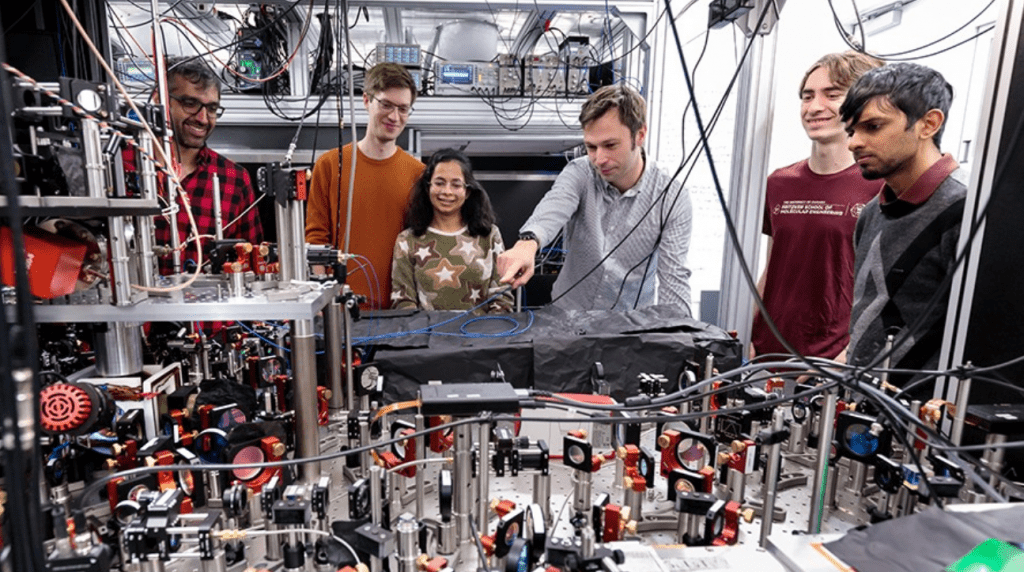The University of Chicago, recently announced to be working with IBM and Google on major quantum projects, also recently touted the latest of its research achievements in the field of quantum computing.
Researchers at the Pritzker School of Molecular Engineering (PME), led by Asst. Prof. Hannes Bernien, have developed a new method that involves assigning qubits in a quantum system to constantly monitor the noise around the system and adjust the qubits, in real-time, to minimize error. This is somewhat akin to how noise-canceling headphones work by monitoring noise and emitting opposing frequencies to cancel out that noise.
“The approach, described online in Science, relies on spectator qubits: a set of qubits embedded in the computer with the sole purpose of measuring outside noise rather than storing data,” according to a University of Chicago news item. “The information gathered by such spectator qubits can then be used to cancel out noise in vital data-processing qubits.”
“With this approach, we can very robustly improve the quality of the data qubits,” said Bernien. “I see this as being very important in the context of quantum computing and quantum simulation.”
The researchers built a prototype system to demonstrate the effect, and plan to continue their work by increasing noise and seeing how their approach holds up. Bernien said, according to the university article, that he envisions “a system of spectator qubits [that] could run constantly in the background of any neutral atom quantum computer and also quantum computers of other architectures, minimizing the error as the computer stores data and makes computations.”
Image caption: (From left): The new paper’s authors are postdoctoral scholar Kevin Singh, postdoctoral scholar Conor Bradley, graduate student Shraddha Anand, Asst. Prof. Hannes Bernien, graduate student Ryan White, and graduate student Vikram Ramesh. (Photo by John Zich)
Dan O’Shea has covered telecommunications and related topics including semiconductors, sensors, retail systems, digital payments and quantum computing/technology for over 25 years.
